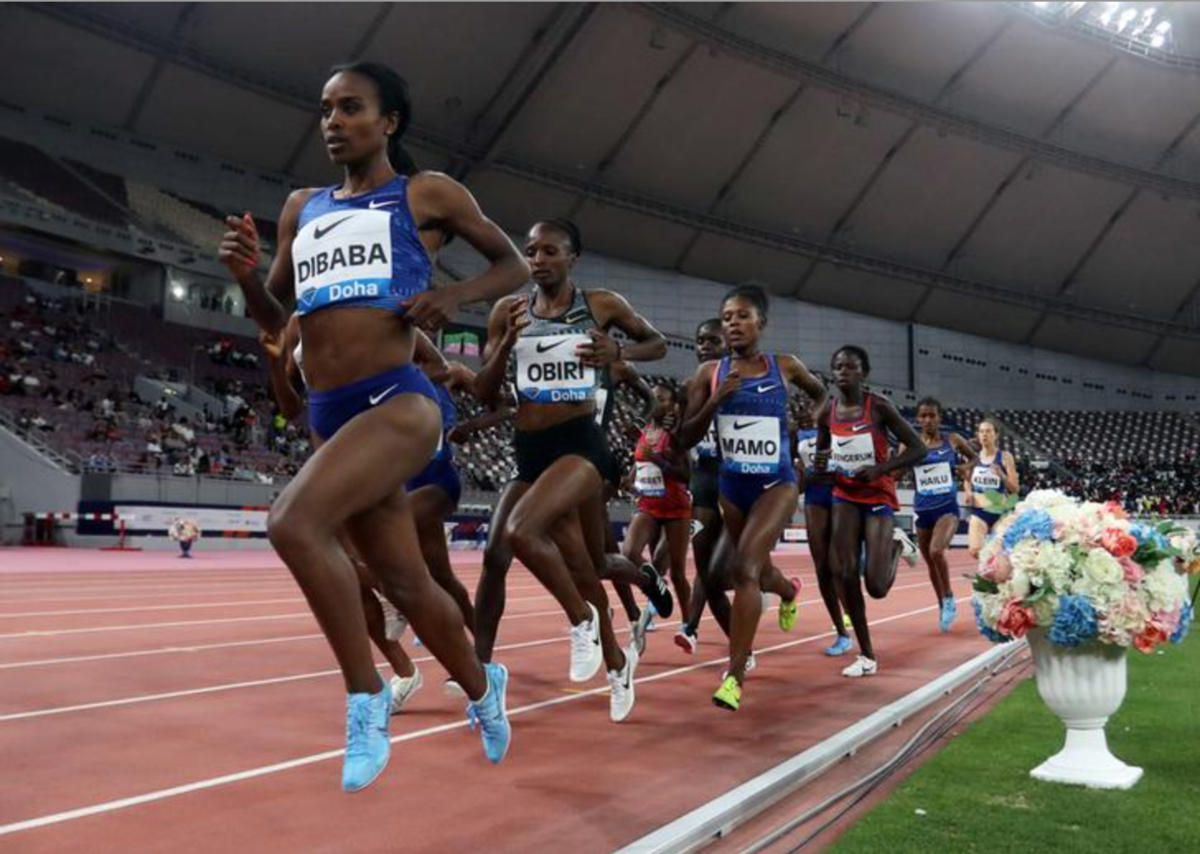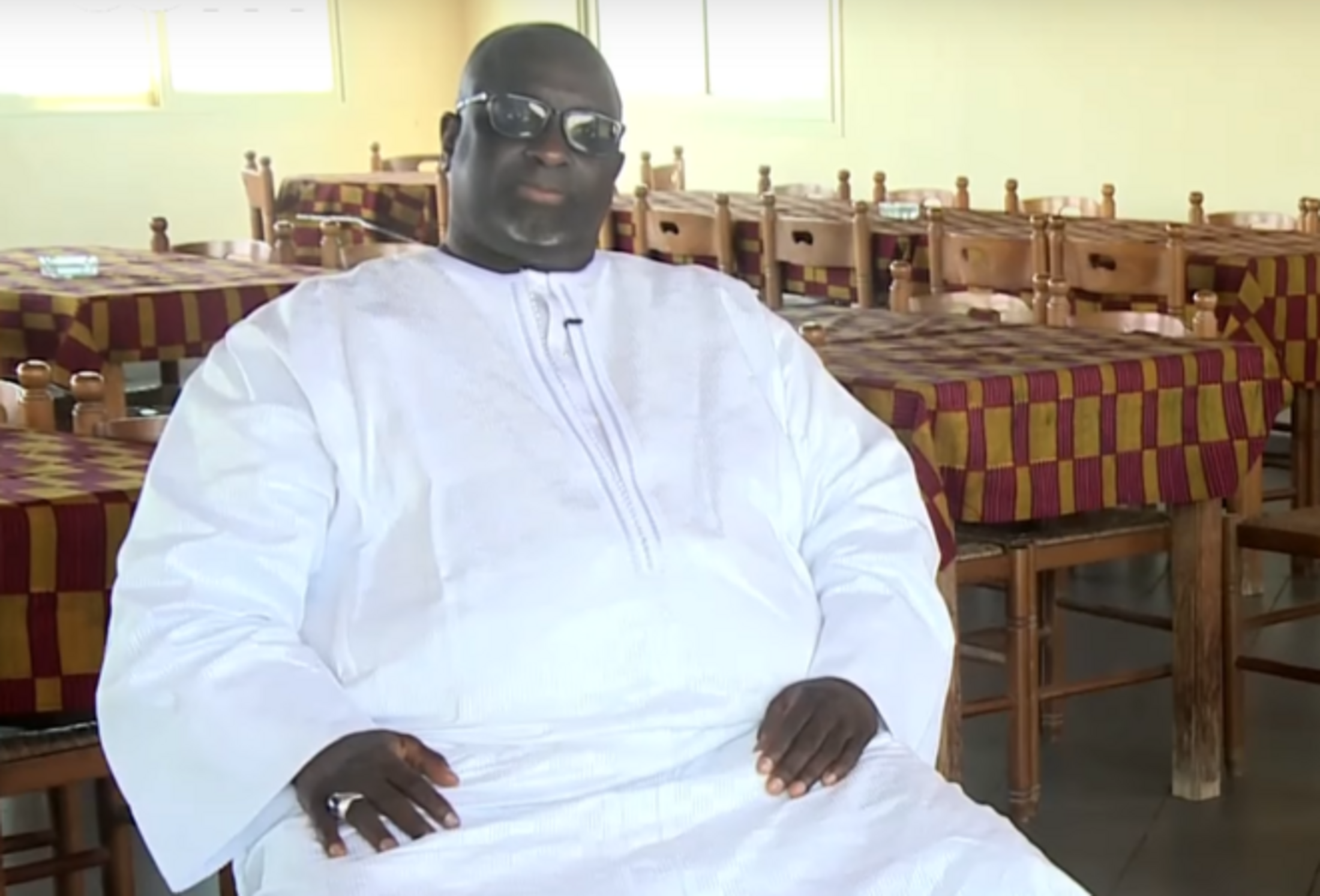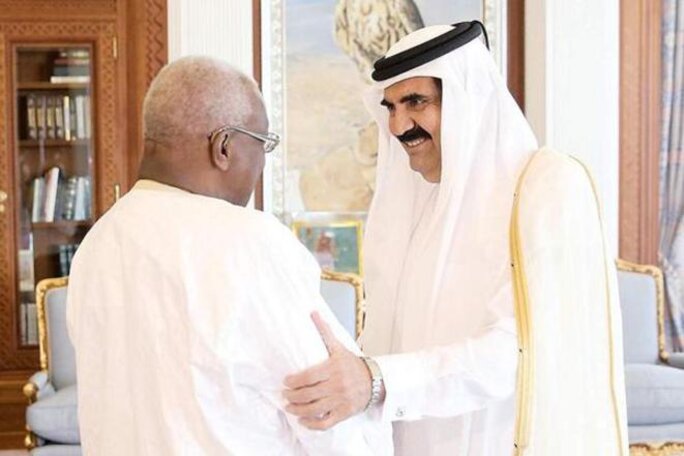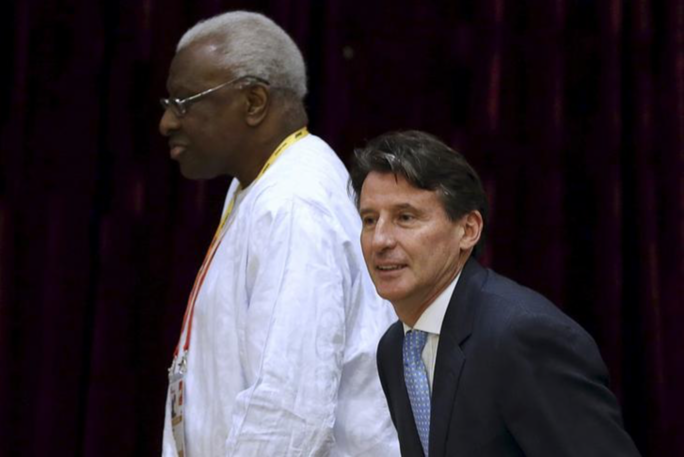Last Friday September 27th was a day of immense pride for Qatar when at 3.30pm local time the World Athletics Championships opened at Doha. Here for ten days the stars of world athletics have been on show, including American sprinter Noah Lyles, French pole vaulter Renaud Lavillenie and France's world decathlon record holder Kevin Mayer.
These athletic championships are a key step in Qatar's aggressive policy of boosting its global influence through sport, and a dress rehearsal for the football World Cup it is hosting in 2022. But in order for the athletics event to take place there at all, it had to be scheduled to September and October for the first time in its history, in order to avoid the worst of the region's summer heat.
Even so, the weather has posed problems for some athletes. The women's marathon took place at midnight on September 28th to avoid the daytime heat but temperatures were still 32C, and 28 of the 68 starters pulled out before the race ended.
The authorities also had to install an energy-guzzling air conditioning system in the Khalifa International Stadium to keep temperatures to 25C, a stadium whose construction some non-governmental groups say involved the exploitation of workers. Even despite the relative cool in the stadium there have been some empty seats. French athlete Kevin Mayer said : “We can all see it's a disaster, there is no one in the stands.” He added: “We have to leave reason aside and concentrate more on the passion, because if not I would have boycotted these championships. We haven't really prioritised athletes when organising the championships here. It makes it difficult.”

Enlargement : Illustration 1

So how did this small country with no track record of athletics nonetheless get to stage this prestigious competition? According to information gathered by Mediapart, the British newspaper The Guardian and the German publication Der Spiegel, the manner in which Doha was awarded the event is now being probed by the major French judicial investigation into corruption inside the sport's ruling body the International Association of Athletics Federations (IAAF), which is being led by Judge Bénédicte de Perthuis after the recent retirement of Judge Renaud Van Ruymbeke.
According to our information, the investigators have established that a few hours before the vote on awarding the championships on November 18th 2014, Doha promised to pay 37.5 million dollars to the IAAF, of which 4.5 million dollars was to buy Qatar's television and sponsorship rights to the event. A proposed contract drawn up three months later stipulated that these 4.5 million dollars had to be paid to The Sporting Age, a shell company registered in Singapore and controlled by Papa Massata Diack, the son of the IAAF president at the time Lamine Diack.

Enlargement : Illustration 2

Papa Massata Diack, who is from Senegal and usually known as 'PMD', and his father Lamine, who was president of the IAAF from 1999 to 2015, are at the centre of one of the biggest alleged corruption scandals in the history of sport, and the investigative is being overseen by the specialist fraud section of the Paris judiciary.
An initial investigation has already been completed. The Diacks will go on trial for corruption in Paris on January 13th 2020, accused of havering cleared drug-taking athletes in return for money, with the complicity of the Russian athletics federation.
It is unlikely that PMD will be in France to stand trial in person; in 2016 he was banned for life from the world of athletics and is the subject of two international arrest warrants issued by the French judicial system. He is currently in Senegal where the authorities are refusing to extradite him. But pressure is growing: the International Olympic Committee (IOC) told Mediapart that it has asked the president of Senegal, Macky Sall, to cooperate with the French authorities which, it says “President Sall has agreed to do” (see Boîte noire box below).
Lamine and Papa Massata Diack will also be tried for having misappropriated IAAF funds. According to the indictment from France's national financial crimes prosecution unit the Parquet National Financier (PNF) this was done using a well-established ploy: Lamine Diack handed the marketing of the IAAF's television and marketing rights to the giant Japanese advertising and PR firm Dentsu and insisted it work with the Swiss company Athletics Management Services (AMS), whose managers are very close to his son. Then AMS subcontracted the rights to Papa Massata Diack (PMD) who raked in millions of euros in commissions from the contracts. As a bonus his father had also named PMD as the IAAF's marketing consultant, which allowed him to receive money on both sides of the deal.
When contacted Papa Massata Diack denied any misappropriation of funds. He informed Mediapart that he had acted in line with the official mandates delivered from the AMS and that the contracts he negotiated had “contributed to enriching the IAAF and athletics” (see Boîte noire box below).
A second judge-led investigation is still ongoing. Here the judges suspect that the commissions received by PMD had been paid by the candidate countries to buy the influence of his father at the IAAF and also the IOC where Lamine Diack was an influential member. PMD also received 10 million dollars in commissions from a sponsorship agreement with the Russian bank VTB, following on from the award of the 2013 World Athletics Championships to Moscow and the negotiation with the Russian athletics federation to protect its drug-taking athletes. The alleged corruption also involves the 2016 Olympic Games in Rio and the 2020 Tokyo games.
It was in the context of this second investigation that the judges uncovered Qatar's suspect practices, which led to Nasser al-Khelaifi, president of Paris Saint-Germain football club and chairman and CEO of the BeIN Media Group, and al-Khelaifi's right-hand man at BeIn, Yousef Al-Obaidly being placed under formal investigation for “corruption” in May 2019. Both men deny any wrongdoing. In 2011 Oryx QSI, a Qatari company owned by one of Nasser al-Khelaifi's brothers, paid PMD 3.5 million dollars in relation to Qatar's failed “campaign” to stage the 2017 World Championship (see Mediapart's article here).
The new IAAF management team, which took over in August 2015 after British former athlete and Member of Parliament Sebastian Coe was voted president, has told Mediapart that it later changed the contract and that in the end it did not benefit The Sporting Age.

Enlargement : Illustration 3

Doha was not ultimately awarded the 2017 athletics event. But the judges suspect that this payment could also have been made in relation to the agreement between the IAAF and the IOC, made at the same time thanks to Lamine Diack, to reschedule competitions to September-October. This allowed Qatar to become a candidate to stage the 2020 Olympics, a bid which failed, and then make the successful bid to be hosts of the 2019 World Championships.
Mediapart understands that the negotiations in relation to the 2019 bid started with a meeting at a summit on May 12th 2013 between the IAAF president Lamine Diack and the Emir of Qatar at the time Ahmad-al-Thani. Confidential minutes of the meeting, obtained by investigators during a search of the IAAF headquarters in Monaco, are unambiguous. According to them the athletics body proposed selling Qatar the television and sponsorship rights of its competitions, and this was directly linked to the awarding of the World Championships to Doha in 2019.
Qatar promised 37.5 million dollars just before the vote
Several other meetings took place after that summit, led by Sheikh Saoud bin Abdulrahman al-Thani, another member of the Qatari ruling family and secretary general of the Qatar Olympic Committee (QOC). But on November 10th 2013 the sheikh wrote to the secretary general of the IAAF, Essar Gabriel, saying that the “proposal” was still being “studied”. Clearly worried, Gabriel forwarded the letter to Lamine Diack and his son PMD, telling them that a meeting “between the president [editor's note, Lamine Diack] and the emir” seemed to him “more important than ever”.

Enlargement : Illustration 4

In the end Qatar accepted the deal a year later, just before the final vote on November 18th 2014 to choose between the rival bids of Doha, Eugene in the United States and Barcelona to stage the 2019 event. On the eve of this vote the Qatar Olympic Committee (QOC) sent Lamine Diack a letter promising to build ten athletics stadia around the world. Then in a second letter, on November 18th itself, just a few hours before the vote, the QOC promised the IAAF president “additional benefits”: 30 million dollars in sponsorship from a Qatari bank and the purchase of the television rights by BeIN for 2.5 million dollars.
When the press revealed these “benefits” just a few days after the vote, it caused a scandal. At the time the German representative on the IAAF, Helmut Digel, criticised what he called an “incomprehensible” decision. Later, in March this year, the German representative told the investigating judge Renaud van Ruymbeke that it was “clear” that IAAF president Lamine Diack had “favoured Doha”.
But the IAAF and its new president Sebastian Coe defended the choice of Qatar to host the event. The body insisted that the last-minute raising of the stakes by Doha conformed to the rules and that the other finalists could have done the same thing had they wished.
Except that the letter of November 18th contained a third promise that has remained confidential until now. This was that the Doha 2019 organising committee agreed to increase from 2 million to 4.5 million dollars the fee it would pay the IAAF for the Qatari rights for the World Championships, in other words the rights to ticketing and national sponsorship.
In the normal course of events this deal should have been negotiated by the Japanese company Dentsu and AMS. But once again they had subcontracted this deal to a front company called The Sporting Age, registered in Singapore and controlled by Papa Massata Diack. That is shown by an unsigned contract, written in February 2015, which was found by police officers during a search of the IAAF headquarters.
The new managements team at the IAAF, which took over six months after this contract was written, told Mediapart – without explaining why - that this contract had in the end been signed in 2018 by Dentsu and that The Sporting Age had not ultimately got any money from the deal. This was also the case with the deal signed with the Qatar National Bank.

Enlargement : Illustration 5

Meanwhile BeIN Sports did not in the end buy the television rights. And as for the ten athletics tracks promised by Qatar, the IAAF says it is in the process of “evaluating the need” in order to work out “where these tracks could be [built]”.
The Qatar Olympic Committee did not respond to a request for a comment. Papa Massata Diack did not respond to questions about the Qatari contract but denies any wrongdoing. He criticised what he called the “completely biased” investigation by French judges and says that France has no legal jurisdiction in this case. He invited the new IAAF president Sebastian Coe to “have the balls” to take proceedings against him in Monaco or Senegal.
The IAAF did not explain to Mediapart why the 4.5 million dollar contract negotiated in February 2015 between the organising committee Doha 2019 and The Sporting Age, Papa Massata Diack's Singapore-registered company, was not concluded in the end.
In any case, that deal posed a number of problems. According to Mediapart's information from September 2014 The Sporting Age received some 4.3 million dollars from the World Championships 2015 organising committee for Beijing, by virtue of a contract to buy national rights similar to the one negotiated with Doha. PMD also received, via other companies, commissions on television broadcast rights and sponsorship deals done by the Chinese groups Sinopec and CCTV.
Officially Papa Massata Diack has nothing to do with The Sporting Age. On paper the company belongs to a man from Singapore called Tan Tong Han. The investigation has established that this sports marketing consultant was effectively a frontman for Papa Massata Diack.
The Sporting Age's bank documents, which were obtained by the investigating judges, leave no room for doubt. In the year following the Chinese payment of 4.3 million dollars, The Sporting Age paid just 1.4 million dollars to AMS, the Swiss company which handles the rights for the IAAF. Tan Tong Han, the official owner of the company, only received 75,000 euros.
In contrast The Sporting Age transferred 1.87 million dollars to the account of one of PMD's companies in Senegal. The Sporting Age also paid 171,173 euros in professional expenses for PMD, as well as for shopping trips in Abu Dhabi (27,130 euros) and Paris. The Sporting Age sent 126,787 euros to a luxury boutique in the Champs-Élysées area of central Paris. When questioned by police officers the shop's manager confirmed that Papa Massata Diack had bought watches and luxury items from them on several occasions, to a total value of 1.7 million euros.
PMD and Tan Hong Han are also linked to the alleged corruption affair involving the 2020 Tokyo Olympics. Tsunekazu Takeda, the chairman of the Japanese Olympic Committee, resigned in March 2019 after being placed under formal investigation by French judge Van Ruymbeke. Before the vote awarding the 2020 games Takeda had signed a 2.3 million dollar deal with Black Tidings, a second offshore account registered in Singapore and run by Tan on behalf of Papa Massata Diack. Takeda has denied any wrongdoing, as have PMD and Tan.
Black Tiding is also linked to the system of alleged bribes taken by the two Diacks to ensure that athletes who were taking drugs escaped punishment. The Russian athlete Liliya Shobukhova, who raised the alarm over the system, was in fact pursued by the sport's anti-doping authorities despite the fact that she had paid out money. Papa Massata Diack eventually agreed to reimburse her 300,000 dollars, money which was sent by Black Tidings.
In January 2019 Tan Tong Han was sentenced to one week's imprisonment in Singapore for having lied to local investigators about this payment. He eventually claimed that Papa Massata Diack had ordered him to give a false explanation to Singaporean police in charge of the investigation. Tan is not being targeted by the investigation in France as the authorities in Singapore have told the French judges that they want to deal with his case.
-------------------------
If you have information of public interest you would like to pass on to Mediapart for investigation you can contact us at this email address: enquete@mediapart.fr. If you wish to send us documents for our scrutiny via our highly secure platform please go to https://www.frenchleaks.fr/ which is presented in both English and French.
-------------------------
- The French version of this article can be found here.
English version by Michael Streeter


